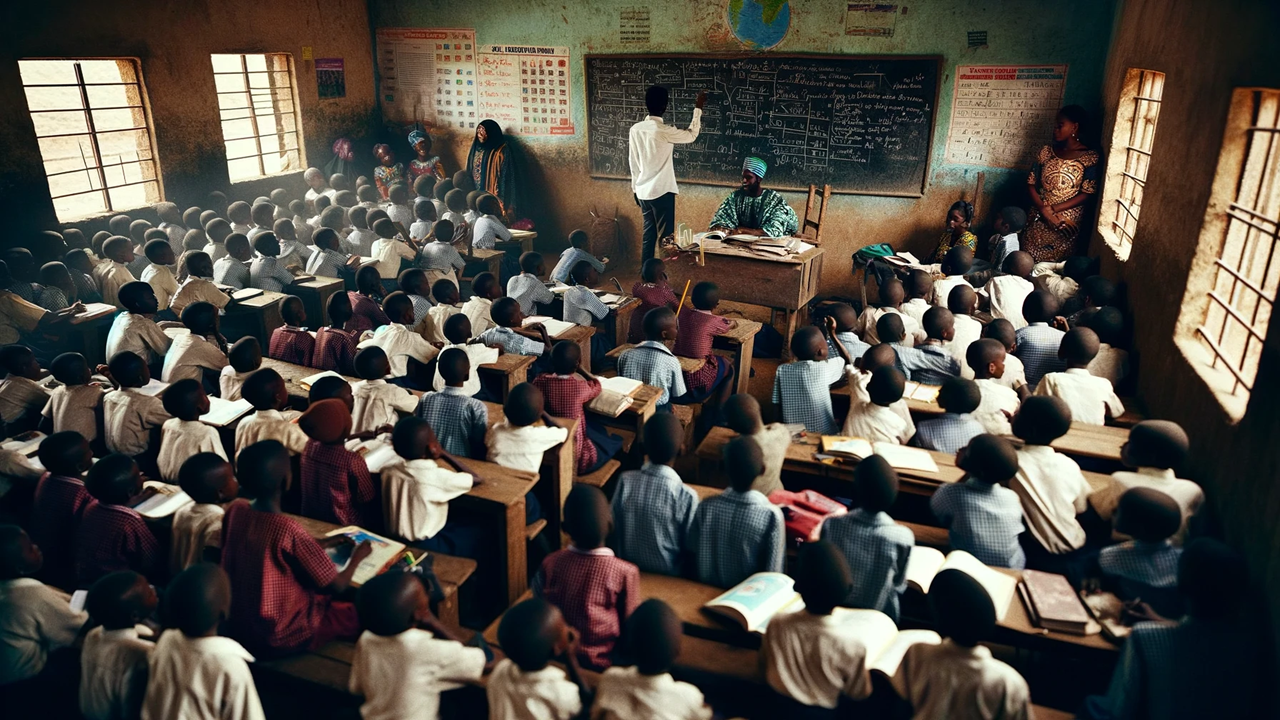Nigeria’s Battle to Provide Basic Education and Healthcare: A Call for Urgent Reforms
Nigeria faces a critical challenge in delivering basic education and healthcare services, hindered by underfunding, inefficiencies, and weak accountability. The World Bank’s Human Capital Public Expenditure and Institutional Review offers a roadmap for reform, emphasizing the need for increased funding to frontline services, improved budget execution, and stronger accountability measures.

Nigeria, Africa’s most populous nation, is grappling with a critical challenge: delivering basic education and healthcare services to its citizens. A recent World Bank report, Human Capital Public Expenditure and Institutional Review reveals the deep financial and governance issues at the heart of this struggle. The report paints a sobering picture of a system plagued by underfunding, inefficiencies, and accountability failures, all of which are stunting the country’s human capital development.
A Persistent Funding Shortfall
The World Bank’s findings reveal a severe underinvestment in Nigeria’s education and healthcare sectors. Despite the urgent need, public spending in these areas is woefully inadequate. The report highlights that even when funds are allocated, they often fail to reach those who need them the most—teachers, health workers, and the facilities they serve.
This problem is further complicated by the stark disparities in spending across different regions. Wealthier states can afford to allocate more resources, while poorer areas are left struggling to keep up. This unequal distribution of funds is widening the gap in service delivery, leaving millions of children without access to quality education and healthcare.
Waste and Inefficiencies: The Silent Crisis
Beyond the issue of funding, Nigeria’s education and healthcare sectors are marred by significant inefficiencies. A troubling portion of allocated funds is lost to waste, particularly due to absenteeism among teachers and health workers. These professionals, crucial to the delivery of essential services, often go unaccountable for their absence, exacerbating the crisis.
Moreover, the bureaucratic delays and political influences that slow down the release of funds mean that resources often arrive too late to make a difference. For many Nigerians, this results in a tragic reality: even when resources exist, they don’t reach the people who need them in time.
Charting a Path Forward
The World Bank report doesn’t just identify problems; it also offers a way forward. One of its key recommendations is to increase direct funding to frontline services. By ensuring that resources go straight to the schools and health facilities, the report suggests that the impact could be immediate and significant.
Improving budget execution is also critical. The report calls for federal and state governments to streamline their processes, ensuring that allocated funds are spent effectively and on time. Transparency and accountability must be at the heart of this reform, with better tracking of how funds are used and the outcomes they achieve.
Addressing the disparities in spending is another crucial step. The report recommends that federal transfers should be based on need and performance, rather than distributed equally across states. This would help to ensure that the most underserved regions receive the support they need to improve education and healthcare outcomes.
Finally, the report emphasizes the need for stronger accountability measures. It advocates for the use of digital systems to monitor teacher and health worker attendance and suggests performance-based incentives to encourage better service delivery. These reforms could help to reduce waste and ensure that public servants are held accountable for their roles in improving Nigeria’s human capital.
The Road Ahead
The challenges outlined in the Human Capital Public Expenditure and Institutional Review are daunting, but they are not insurmountable. With targeted reforms and a commitment to better governance, Nigeria can make significant progress in delivering the education and healthcare its people deserve. The stakes are high, but the potential rewards—better health, improved education, and a stronger economy—make this a battle worth fighting.
- READ MORE ON:
- Nigeria
- education
- healthcare
- public spending
- governance
- reform
- World Bank
- FIRST PUBLISHED IN:
- Devdiscourse
ALSO READ
IIMC's 200-Crore Investment: A New Epoch in Media Education
Reliance Industries' Bold Pivot: From Oil Dominance to Healthcare Innovations
Major Boost for Odisha’s Higher Education: Rs 676.70 Crore Sanctioned
Global Shake-up in Healthcare: Key Developments and Implications
Kota: The Emerging Hub for Quality Education and Tourism










